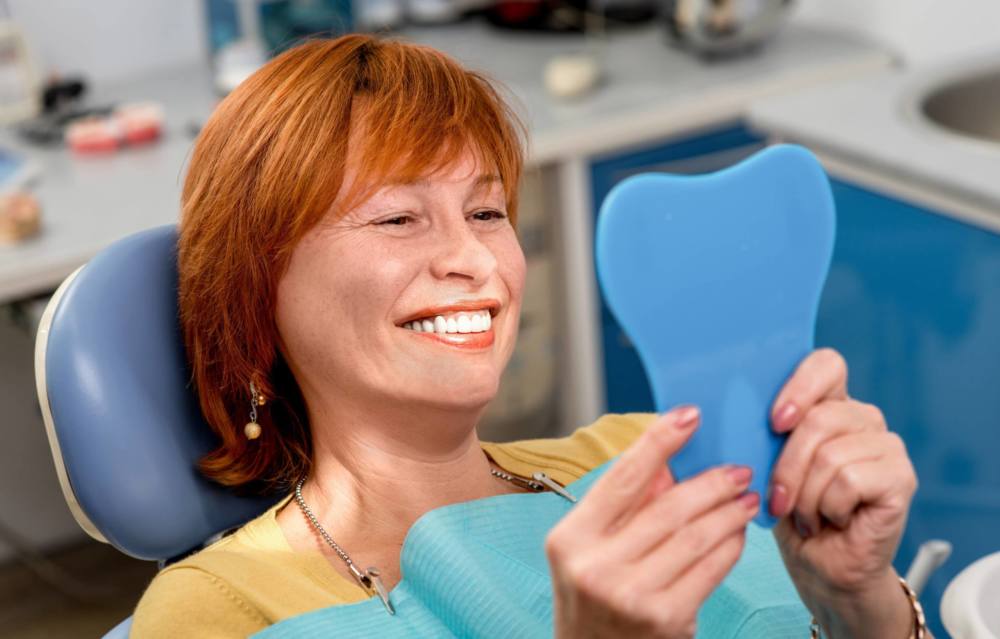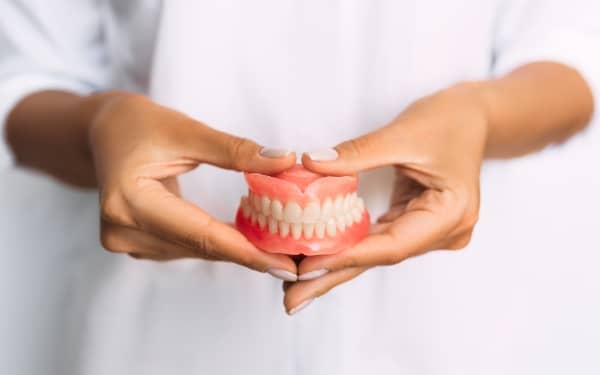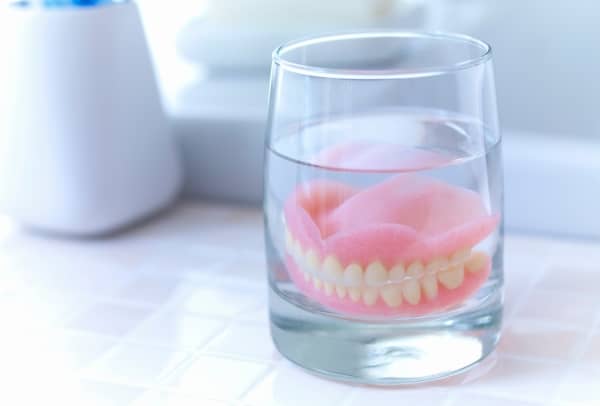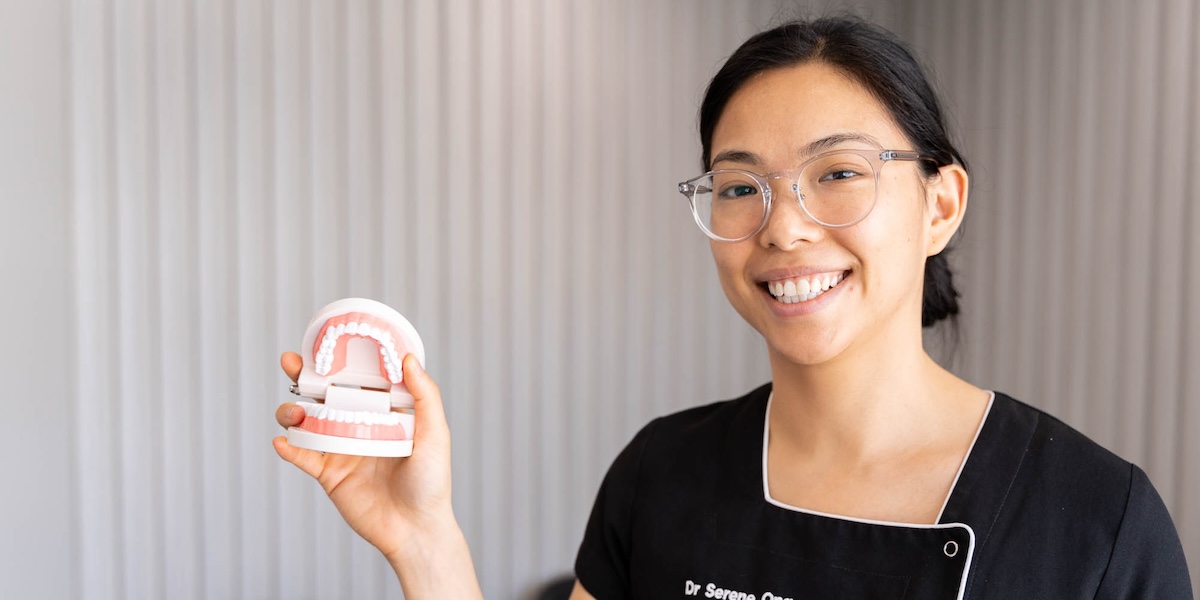
How to Tell the Difference Between Good Dentures and Bad Dentures
Do you currently wear dentures? Or are you thinking of getting dentures? If so, it is important to know what to expect from good dentures. While good dentures allow individuals to eat and smile with confidence, poorly fitted or low-quality dentures can lead to painful, costly problems.
Here’s what you need to know about the types of dentures and the difference between good dentures and bad dentures to help you have the healthiest, most beautiful smile possible.
What Are Dentures?
Dentures are removable artificial teeth. They can restore a natural-looking smile and allow you to speak and eat comfortably again.
Dentures are constructed from premium materials that are designed to resist stains and last for a long time when cared for properly.
What Are the Types of Dentures?
There are a variety of types of dentures that can be worn just on the top of the mouth, bottom, or both. The type of denture that is best suited to you depends on the number of teeth you have remaining, your personal preference, and your oral health.
Here’s a quick look at the common types of dentures:
- Conventional Dentures — For individuals who have already lost some (partial denture) or all (full denture) of their teeth, conventional dentures can be worn on both the lower and upper jaw.
- Immediate Dentures — Immediate dentures are a type of denture made before your teeth are extracted. They are fitted on the day your teeth are extracted. This allows for a more aesthetic option compared to waiting 3 months for dentures to be fitted after extractions.
- Partial Dentures — Partial dentures are used when an individual still has some remaining teeth. Partial dentures are secured by attaching them to surrounding natural teeth.
What Are the Signs of Good Dentures?
Here’s what to expect from good quality, properly fitted dentures:
A Secure Fit — Dentures should stay securely in place, allowing you the ability to speak, eat, and smile without fear of your dentures shifting around — or, worse yet, falling out! Good dentures are custom moulded to match the contours of your mouth and bite pattern.
Incorrect impressions, poor evaluation, time, and other factors can contribute to loose dentures. It is crucial to ensure you work with a qualified dentist to ensure your dentures fit your mouth precisely as they should. It is also important to receive regular dental checkups to ensure your dentures still fit securely.
A Natural Appearance — Good dentures should not look fake. Custom dentures should match the colour, shape, and size of your natural smile. When completed, high-quality custom dentures should look like your regular smile — or better.
The Ability to Eat — Good dentures should enable you to enjoy the foods you love.
Comfort — High-quality, custom dentures should fit comfortably and securely and without pain. Good dentures should allow you to go about your daily life with confidence that your teeth look good, feel good, and function as they should.
What Are the Signs of Bad Dentures?
New dentures will take some time to get used to. You may have to practice eating and speaking. At first, it may help to eat foods that are softer or cut up into small, bite-size pieces. Sticky, chewy, or hard foods should be avoided until you are comfortable with your new dentures.
While it is normal to feel a little uncomfortable at first when wearing dentures, poorly fitted dentures or low-quality dentures can lead to side effects that need immediate attention.
Here are some common signs of bad dentures:
- Difficulty Chewing — After the initial period of getting used to your dentures, you should be able to chew comfortably and confidently. Ill-fitting dentures may prevent the jaw from moving naturally and cause the lips to fold, making it difficult to bite and chew.
- Bleeding, Cracked, Dry Lips — If your lips fold when you chew, saliva and food debris may end up on your lips, causing moisture to evaporate. This irritation and dryness can lead to painful, cracked, dry lips. It can also lead to accidental biting of the lips and drooling. Together, these issues can lead to angular cheilitis, a painful, common condition among denture wearers and can lead to infection.
- Mouth Infections — Along with angular cheilitis, denture wearers are also prone to other infections, including thrush. Infections can result from not removing dentures overnight, poor oral hygiene, yeast overgrowth, or poor denture care.
Additional problems from bad dentures include:
- Bite errors and uneven chewing
- Looseness
- Pain when taking dentures in or out
- Teeth grinding
- Poor appearance (dentures that appear bulky, irregular, or unnatural)
- Cheek biting
- Difficulty speaking
- Gum inflammation
- Gagging
- Noise or clicking while chewing
If you are a denture wearer and are experiencing any of these issues, contact your dentist immediately for evaluation.
Quick Tips for Caring for Your Dentures
To keep your dentures looking great and functioning as they should, it is important to:
- See your dentist for regular checkups
- Gently brush your gums daily
- Do not use hot water on your dentures
- Only use cleaning products that are specifically created for dentures
- Do not use bleach, toothpaste, or other items to clean your dentures
- Soak your dentures in a denture cleanser regularly
- Brush your dentures daily
- Store your dentures properly
- Be careful when handling your dentures (to prevent breaks, lean over a towel or a filled sink when removing or inserting your dentures)
Want to Learn More About the Different Types of Dentures?
At Genesis Dental, our team is skilled in finding the right denture type for your individual needs and preference. We ensure that your dentures fit properly, are comfortable, and allow you to smile with confidence.
If you are interested in scheduling a consultation to see if dentures would be a good solution for your missing teeth or if you’d like your current dentures evaluated, get in touch with the dentist Canning Vale trusts to delivery quality outcomes today.




